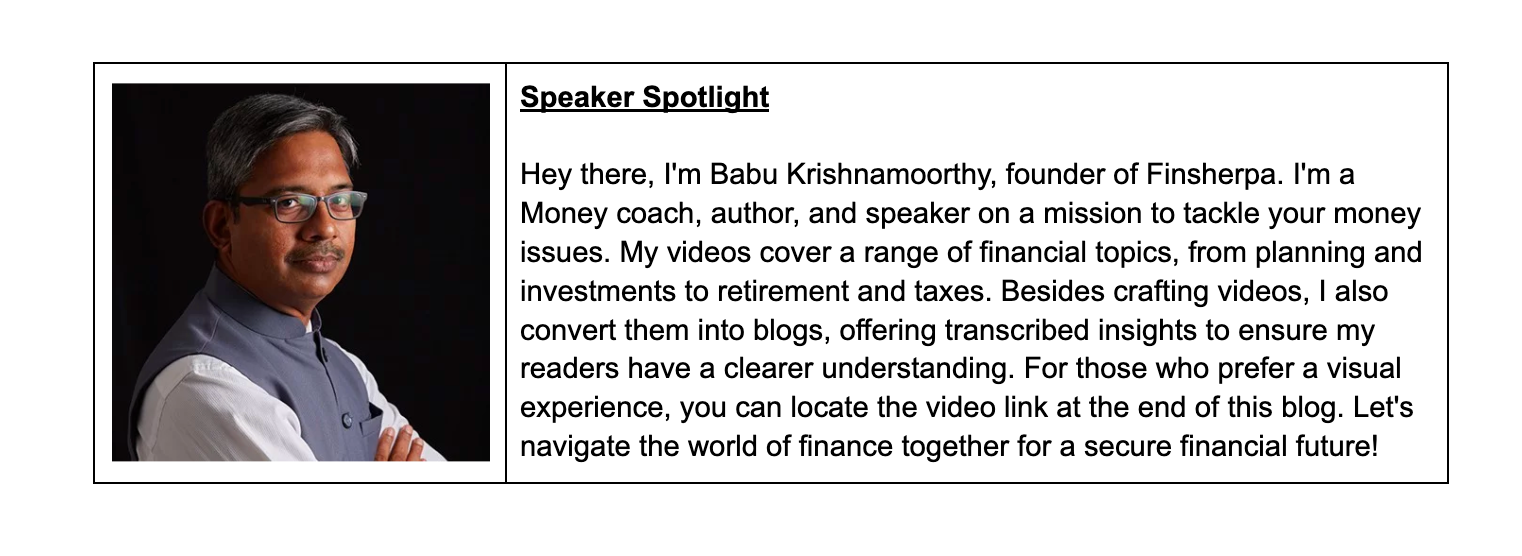_-_finsherpa_1726479128.jpg)
Dealing with Ambiguity in Investing - Handle Uncertainty Like a Pro
Posted By: Blog

In today's rapidly shifting global landscape, uncertainty is the only constant. With wars in Eastern Europe and the Middle East, economic turmoil across continents, and central banks working overtime, how do we make sense of it all as investors? More importantly, how can we continue to build wealth in such an unpredictable environment? Let’s dive into how you can handle ambiguity in investing and make informed decisions amid uncertainty.
Risk vs. Uncertainty in Investing
When it comes to investing, two key components always come into play: risk and uncertainty.
Understanding Risk and Uncertainty
To grasp the difference between the two, let's consider a simple example. Imagine two boxes:
- Box A contains 100 balls—50 white and 50 black.
- Box B also has 100 balls, but you have no idea how many are white or black.
If you were told that you’d earn ₹500 for each white ball you pick, most people would choose Box A. Why? Because there’s a clear 50% chance of selecting a white ball. However, in Box B, the uncertainty of not knowing how many white balls exist makes it a less appealing option.
Now, flip the scenario. Let’s say you earn ₹500 for picking a black ball. What box would you choose? Again, most people stick with Box A—because they’re more comfortable with known probabilities. Even though the conditions changed, the certainty in Box A feels safer. This is a prime example of how we, as investors, prefer situations where risks are quantifiable, avoiding uncertainty at all costs.
Check out the video link for a more in-depth understanding
The Ellsberg Paradox
This behavior illustrates the Ellsberg Paradox, where we naturally gravitate toward situations with known risks rather than facing the ambiguity of unknown outcomes. In investments, risk refers to situations where the probability of outcomes can be measured, while uncertainty is when no such data is available.
How Uncertainty Affects Investment Decisions
In the face of uncertainty, particularly during volatile times like geopolitical conflicts or economic downturns, investors tend to make emotional decisions. A major event, such as the escalation of a war, can lead to global stock markets plummeting. Many investors, feeling the pressure, sell off their holdings in a rush to preserve their capital. This collective behavior often exacerbates market declines, driving prices even lower.
The Human Reaction to Uncertainty
In such situations, people prefer to follow the crowd, often selling their investments or holding cash, even if these may not be the best decisions for the long term. This tendency to revert to familiar actions in uncertain times can be detrimental to long-term wealth creation.
Learning from Admiral Stockdale: How to Survive in Uncertainty
The story of Admiral Stockdale provides a valuable lesson in dealing with uncertainty. Captured in the Vietnam War, Stockdale went through eight long years of intense torture. His survival hinged on two contrasting emotions: the brutal realism of his situation and an unwavering hope that he would one day be free.
He accepted the harsh reality of his daily suffering but remained hopeful for a future reunion with his family. This balance between realism and hope kept him alive, while many of his fellow prisoners—optimistically believing they’d be free by Christmas or New Year—succumbed to despair when that didn’t happen.
Applying the Stockdale Paradox to Investing
We can incorporate the Stockdale Paradox into our investment methods. When the stock market takes a nosedive, it’s essential to remain grounded in the reality that market plunges are part of the investment journey. At the same time, maintaining hope and faith in the market’s recovery is crucial.
The stock market represents the growth of companies and the economy of countries. So, even if it falls sharply, it will eventually rebound. Those who can hold on through the tough times are the ones who will ultimately build wealth.
Check out the video link for a more in-depth understanding
The Key to Managing Uncertainty in Investing
The secret to dealing with ambiguity in investing is committing to the long term. Whether you’ve set a financial goal for three, five, or ten years, staying invested through market highs and lows is crucial. Short-term dips can be brutal, but they’re a natural part of market cycles.
Remember: If you can’t endure the difficult days, you won’t reap the rewards of long-term gains.
Final Thoughts
Handling ambiguity in investing requires a mix of realism and hope. Acknowledge the challenges, stay committed to your financial goals, and understand that the market will recover over time. By staying the course during uncertain times, you position yourself for long-term success and wealth creation.
For the complete video experience, click on this link
Category Finsherpa | Tags


